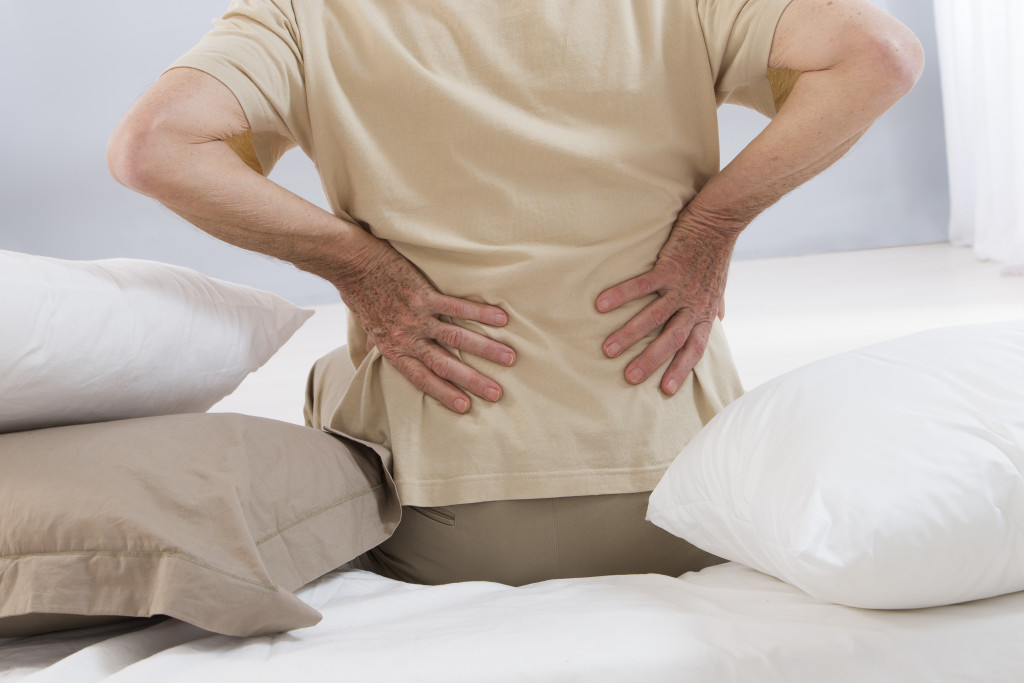- Calcium and Vitamin D are critical nutrients for maintaining bone density, especially as you age.
- Regular exercise, especially weight-bearing and resistance training, is vital for your bone health.
- Maintaining a healthy weight and quitting smoking can significantly reduce the risk of bone damage.
- Good dental health, including the use of dental implants, can prevent jawbone deterioration.
As you age, your body goes through many changes, and one of the most significant changes is the deterioration of your bones. Maintaining strong bones as you age is essential to prevent osteoporosis, fractures, and other bone-related problems. Here are a few things every senior should know about bone health.
Calcium is essential for bone health.
Calcium is an essential nutrient that your body needs for strong bones. It helps in building and maintaining bone density. As you age, your body absorbs less calcium, making it even more essential to consume enough.
Dairy products like milk, cheese, and yogurt are excellent sources of calcium. Vegetables like kale, broccoli, and spinach also contain high calcium levels. Additionally, you can take a calcium supplement if your diet lacks calcium.
Vitamin D is essential, too.
Vitamin D helps your body absorb calcium, making it necessary for strong bones. You can get vitamin D from sunlight, but your skin becomes less efficient at producing it as you age. Therefore, you may need to supplement your diet with vitamin D tablets or eat foods high in vitamin D, like fatty fish, egg yolks, and fortified products like cereal and orange juice.
Exercise is critical for bone health.
Engaging in regular exercise is essential for maintaining bone health. Exercises that work against gravity are particularly beneficial for bone health. Here are a few such exercises that you need to try out:
Walking.

Walking is one of the most accessible forms of exercise, and it’s also great for bone health. Make sure to take longer, brisk walks regularly for the best results.
Jogging.
Jogging is another excellent exercise for improving bone health. It helps build bones and also protects against osteoporosis. Start slow and gradually increase the distance as you grow more comfortable.
Weight-Bearing Exercises.
Weight-bearing exercises like aerobics and stair climbing help maintain bone density by putting pressure on your bones and muscles. If you’re not sure what activities you should try, talk to your doctor or a qualified personal trainer.
Resistance Training.
Resistance training refers to using weights, bands, or other tools to help strengthen muscles and increase bone density. Talk to your doctor before starting any resistance training program, as it can sometimes lead to injury in seniors.
By making sure you get enough exercise every week, you can help maintain strong bones and protect against bone-related problems.
Weight matters.
Maintaining a healthy weight is essential for bone health. Being underweight will increase your risk of bone fractures and lower bone density. Being overweight can strain the bones, leading to bone damage over time. A balanced diet, coupled with exercise, is an effective way to maintain a healthy weight and promote bone health.
Quit smoking.<
Smoking has been linked to several health problems, including osteoporosis. Smoking will decrease your bone density and increase your risk of fractures. If you’re a smoker, quitting this habit is one of the best things you can do for your bone health. It can also reduce the risk of other health problems like cardiovascular disease, cancer, and respiratory disease.
Take care of your dental health.

It might come as a surprise, but your dental health is linked to bone health. Poor oral hygiene can lead to gum disease and tooth loss. And when a tooth is lost, the underlying bone can begin to deteriorate due to lack of stimulation.
If this is the case for you, consider getting dental implants right away. These implants can help stimulate the jawbone and prevent further bone loss. Not to mention, they look and feel just like natural teeth. Just make sure you also maintain good oral hygiene habits, such as brushing and flossing regularly.
Maintaining strong bones does not need to be a complex task. With the proper nutritional intake, regular exercise, and good lifestyle habits, you can keep your bones healthy as you age. Remember that calcium and vitamin D are vital for bone health, while regular exercise helps improve bone density.
Monitor your weight, quit smoking, and care for your dental health to prevent bone-related issues. This journey towards maintaining bone health requires a comprehensive approach, and making small, consistent changes can significantly improve your overall health and well-being. Aging might be inevitable, but a life impacted by bone-related issues does not have to be. Here’s to your health, vitality, and strong bones!
